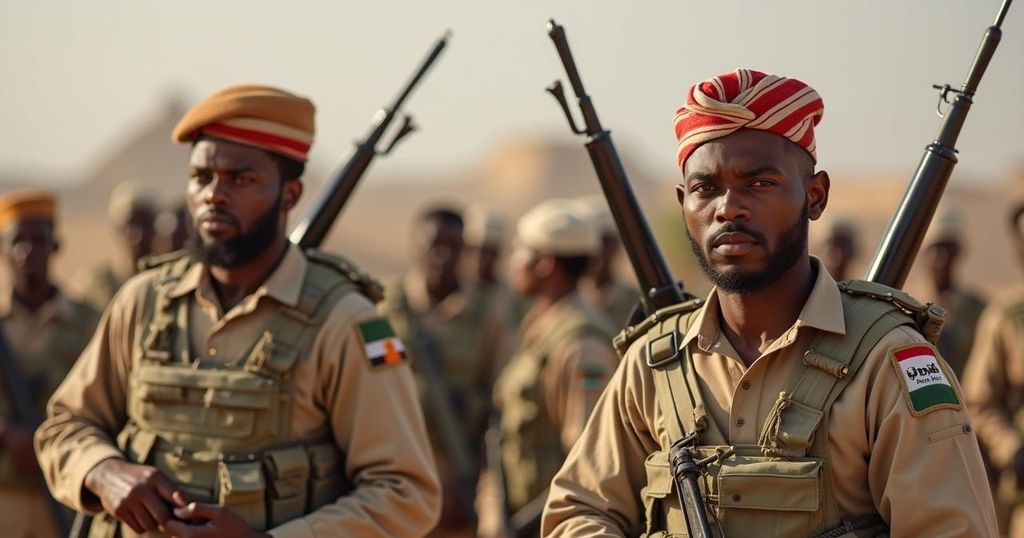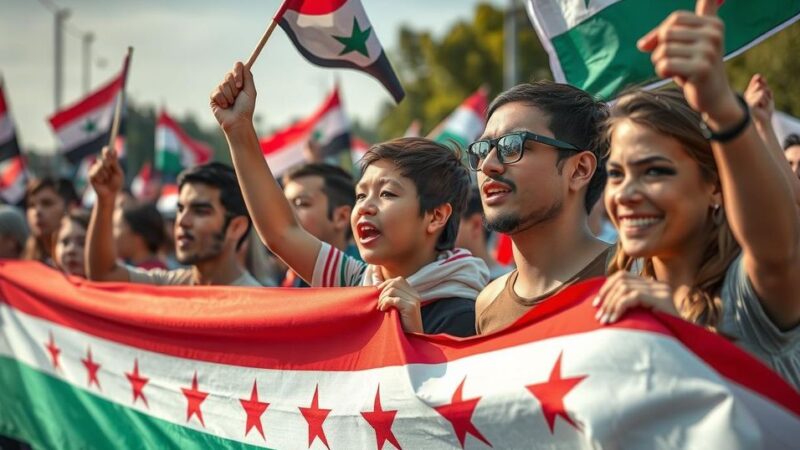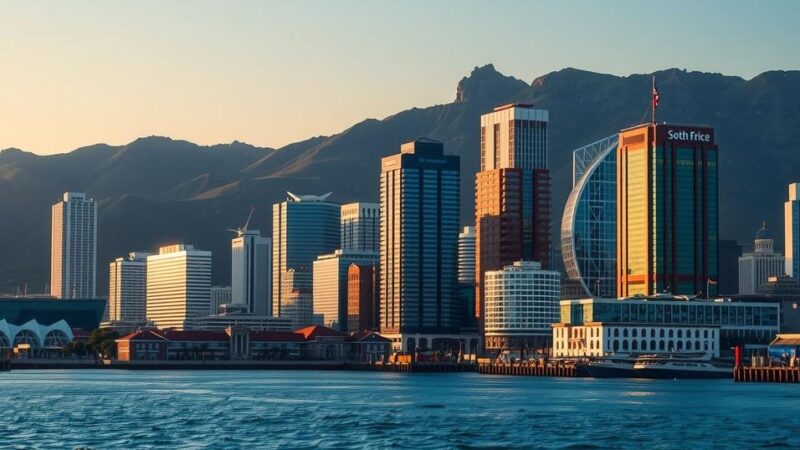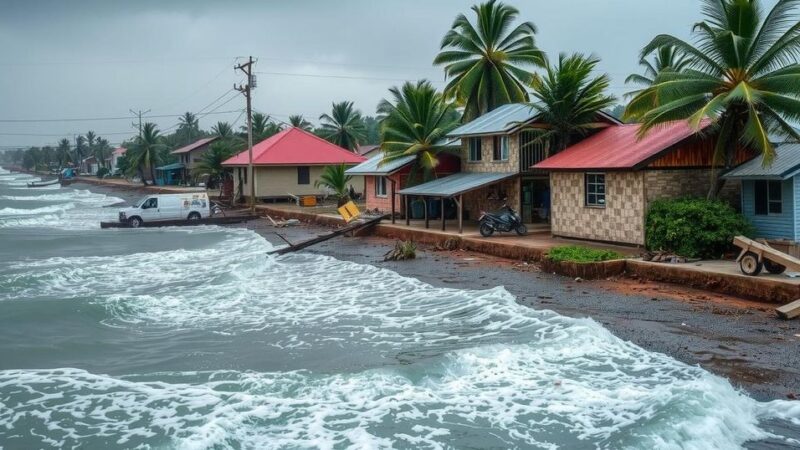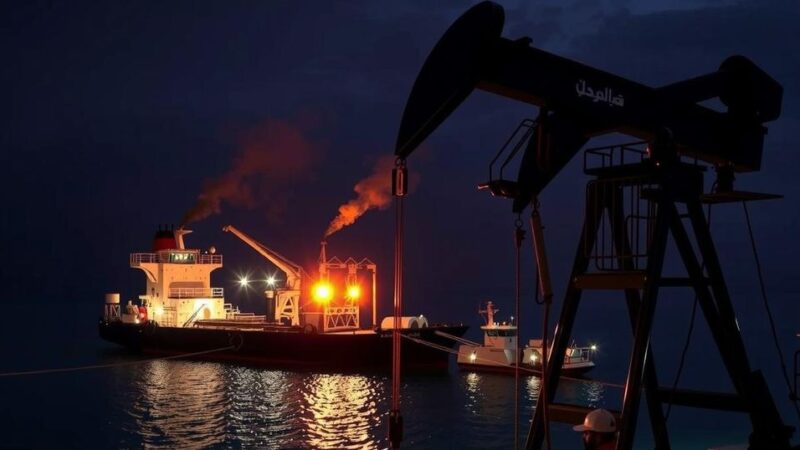The commander of Sudan’s Rapid Support Forces (RSF), Hemeti, has accused Egypt of launching air strikes against his troops near Khartoum, an allegation that Cairo has denied. Hemeti claims that Egypt is training the Sudanese army and providing them with drones amidst an ongoing conflict that has resulted in severe humanitarian crises. Geopolitical analysts suggest the accusations reflect a shift in the conflict’s dynamics and highlight concerns about foreign intervention on behalf of the SAF.
Mohamed Hamdan Dagalo, known as Hemeti, the commander of Sudan’s Rapid Support Forces (RSF), has accused Egypt of conducting air strikes against his troops in the vicinity of Khartoum. In a recorded message, Hemeti stated that his forces in the Jebel Moya area were “treacherously attacked and killed by Egyptian aircraft.” He expressed frustration at having remained silent about this alleged involvement for an extended period but felt compelled to speak out due to an escalation of hostilities. Egypt’s foreign ministry promptly denied the accusations, urging the international community to scrutinize Hemeti’s claims for veracity. Hemeti also accused Cairo of providing training and drone supplies to the Sudanese Armed Forces (SAF), which has been in conflict with the RSF since April 2023. Geopolitical analyst Ammar Fayed noted that Hemeti’s allegations may signal a shift in the balance of power, raising concerns about foreign intervention on behalf of the army. The battle for Khartoum has intensified, with the SAF reporting significant territorial gains against the RSF in recent weeks. Hemeti alleged that the aircraft involved in these strikes were of American manufacture and suggested Iranian involvement alongside SAF forces. He further claimed the presence of various mercenaries from countries such as Tigray, Eritrea, Azerbaijan, and Ukraine, amidst the backdrop of U.S. sanctions imposed on his brother for arms procurement supporting the RSF. General Abdel Fattah al-Burhan, Sudan’s head of state, indicated during a previous UN General Assembly address that the RSF was receiving diverse political and logistical support, although did not specify which nations were involved. Reports also indicate that the UAE has emerged as a primary supporter of the RSF. Recent accusations revealed a deterioration in relations between the UAE and the SAF after an alleged SAF airstrike on the UAE’s ambassador’s residence in Khartoum. In his address, Hemeti asserted that several nations are directly or indirectly aiding the SAF and expressed confidence in his military’s ability to reclaim lost territories despite the overwhelming force of advanced military aircraft utilized by the army. The ongoing conflict has resulted in devastating humanitarian crises, displacing over ten million individuals and pushing millions to the brink of famine. Rights organizations have raised alarms regarding potential atrocities committed by the RSF, with some reports indicating that the violence in Darfur may constitute genocide against certain communities. Meanwhile, peace talks have thus far failed to yield significant progress, with Hemeti hinting at a protracted conflict ahead and asserting that the war may not conclude in the near future.
The conflict in Sudan, which began in April 2023, primarily involves the Rapid Support Forces (RSF) led by Hemeti and the Sudanese Armed Forces (SAF), allied with Egypt. Tensions between these factions have led to fierce battles over control, especially in the capital, Khartoum. Egypt’s involvement has been a controversial element, with allegations of air strikes and support for the SAF sparking significant diplomatic tensions. The conflict has escalated to a humanitarian disaster, prompting international attention and calls for ceasefires, despite inconsistent dialogue outcomes.
The allegations made by Hemeti against Egypt highlight the complexities and international dimensions of the conflict in Sudan. With accusations of foreign interference and escalating military actions from both sides, the situation remains precarious. As millions face dire humanitarian crises due to ongoing violence, the potential for prolonged conflict appears likely, given the statements and circumstances outlined in Hemeti’s address. It underlines the urgent need for substantial international diplomatic efforts to address both the immediate humanitarian needs and to work towards a sustainable resolution of the conflict.
Original Source: www.middleeasteye.net

